Previous two posts: (1) Propaganda in Modern Democracies and (2) “America, the most propagandised of all nations”
—oo0oo—
It began with the emergence of modern democracy. Historians have labeled the few decades prior to World War 1 the Age of Progress (compare the Gilded Age in the US). Business interests boomed and so did working class power. Democracy was on the march in both the UK and US: in 1880 10 to 15% of the population had the vote; by 1920 that figure had advanced to 40 or 50% — although in reality it was more a slogging series of trench battles than a march.
The Fears
Those who owned the property and capital were by and large alarmed by these developments.
[T]o the working class the question of political reform had been from the beginning a question of property. It was misery that made them politicians. They were convinced that all their suffering was due to unjust laws, and that, therefore, the only remedy was the appropriation of political power by the sufferers. Society, as it was constituted, was an organised conspiracy to rob the working class; it was the order of society itself that needed to be reversed, and the means to that reversal was parliamentary reform. . . .
It appears, then, . . . that the political agitation of the working class was inspired from the first by the keen sense of distress . . .
[A] silent revolution has taken place. By successive extensions of the franchise and redistribution of seats the principle of adult (or at least of manhood) suffrage has come to be so far recognised in fact that a further extension of it is generally felt to be merely the logical corollary of what has been already done. . . .
But the mass of the people into whose hands, in the course of devolution, the government will fall, are daily becoming more and more aware of what they mean to do with their power. The working class is ranging itself against the owners of land and capital. The nation is dividing into two antagonistic sections, and it is to one of these sections, that which is numerically the larger, that must fall, according to the democratic theory of government, the absolute monopoly of power. It is in this situation that resides the political problem of the English democracy . . . . (Dickinson 1898, p. 131, 146, 153, 159)
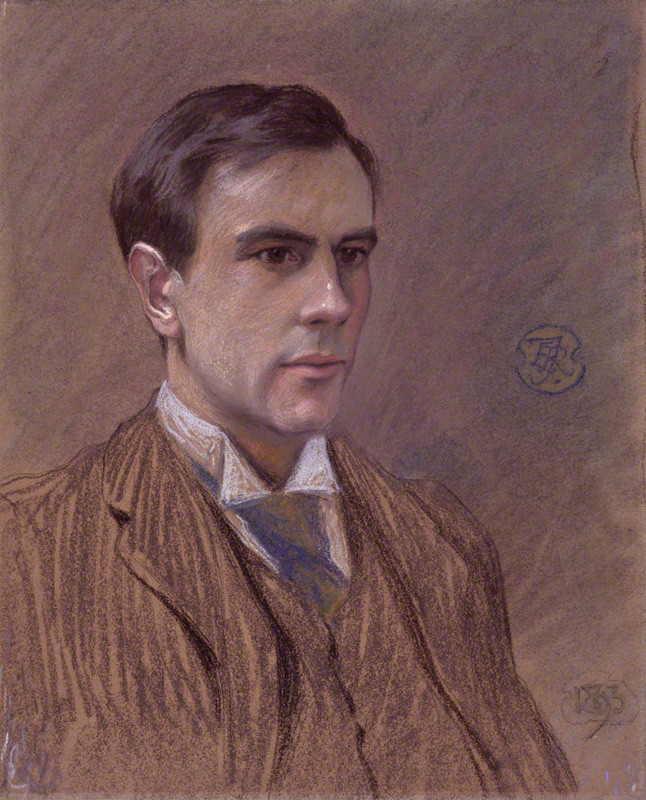
How serious a problem was the extension of democracy?
Universal suffrage . . . would give, it is supposed, to the more numerous of the two classes . . . the unconditional and absolute control of the legislature; they would therefore be able to effect, without further difficulty or scruple, a fundamental change in the tenure of property.
Stated thus crudely and frankly, but not, as I believe, unfairly, this conception appears to me to be a reductio ad absurdum of the whole theory of democracy, so far as it is held in any absolute sense. It is not true, and it never has been and never will be true, that the majority have either the right or the power to do anything they choose, in defiance of the claims or the wishes of the minority; and if ever a serious attempt were to be made to carry out the policy of the Socialists, the only result would be the breakdown of government altogether. Government by the majority is a convenient means of conducting national affairs, where and in so far as there is a basis of general agreement deeper and more persistent than the variations of surface opinion; but as soon as a really fundamental point is touched, as soon as a primary instinct, whether of self-preservation or of justice, begins to be seriously and continuously outraged, the democratic convention gives way.
Fear of “the tyranny of the majority” does sound somewhat crass if those who have the most to lose for the sake of establishing a more equitable and fairer society for all speak about their own interests only. Attention is deflected to a more idealistic cause, one that makes the opponents of majority rule look like white knights with nought but the interests of others at heart, like religious minorities. (Never mind the fact those opposed to full democracy at other times expressed horror that the advocates for extending the franchise would “destroy all reverence for religion” and roll back the power of the Church!)
No minority, for example, even in a compact modem State, either would or ought to submit to a decision of the majority to prohibit the exercise of their religion. Such a decision could only be carried into effect by force, subject to the contingency of armed rebellion; and orderly government would dissolve into veiled or open civil war. Similarly, and in spite of the optimism of Home Rulers, it is perfectly possible that in the case of a population as heterogeneous as that of Ireland, the attempt to introduce the system of government by the majority might really drive the minority to rebellion. (Dickinson 1898, p. 161f)
The minority with the wealth and industrial power had the means to fight. They also were acquiring the means to fight without necessarily always resorting to physical violence.
The Warnings
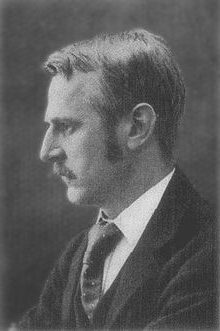
In 1908 British analyst Graham Wallas sounded the following warning:
Popular election, it is said, may work fairly well as long as those questions are not raised which cause the holders of wealth and industrial power to make full use of their opportunities. But if the rich people in any modern state thought it worth their while, in order to secure a tariff, or legalise a trust, or oppose a confiscatory tax, to subscribe a third of their income to a political fund, no Corrupt Practices Act yet invented would prevent them from spending it. If they did so, there is so much skill to be bought, and the art of using skill for the production of emotion and opinion has so advanced, that the whole condition of political contests would be changed for the future. No existing party, unless it enormously increased its own fund or discovered some other new source of political strength, would have any chance of permanent success. (Wallas 1908, p.5)
The following year Wallas’s warning was picked up by US scholar Abbot Lawrence Lowell who used passed it on in lectures at Johns Hopkins University:
Graham Wallas . . . is probably right in thinking that property in such a case would resort, not to resistance by force, but to corrupting the electorate. To quote his words: “Popular election, it is said, may work fairly well as long as those questions are not raised which cause the holders of wealth and industrial power …” (Lowell 1913, p. 43 – originally delivered as lecture in 1909)
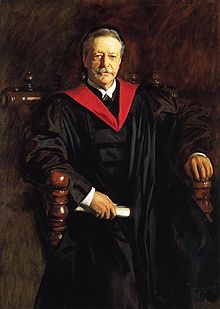
Via Lowell’s warning we now move to the United States to witness some of the earliest battles by seduction.
President Wilson recognized the national propaganda war being waged by business giants to oppose the Underwood Tariff legislation and in 1913 declared to the press:
Washington has seldom seen so numerous, so industrious, or so insidious a body. The newspapers are being filled with advertisements calculated to mislead the judgment not only of public men, but also the public opinion of the country itself. There is every evidence that money without limit is being spent to sustain this lobby and to create an appearance of a pressure of public opinion antagonistic to some of the chief items of the tariff. . . . It is thoroughly worth the while of the people of this country to take knowledge of the matter. Only public opinion can check and destroy it.
And so a Congressional inquiry into the National Association of Manufacturers (NAM) commenced in the same year. Tellingly, the investigating committee were awed by the propaganda program of NAM, finding it far grander in scale than a raft of newspaper advertisements. . . .
The Seductions
The Committee found that the NAM was:
. . . an organization having purposes and aspirations along industrial, commercial, political, educational, and other lines, so vast and far-reaching as to excite at once admiration and fear—admiration for the genius which conceived them and fear for the effects which the successful accomplishment of all these ambitions might have in a government such as ours.
(63rd Cong., 1st sess., House report 113, printed in Congressional Record, vol. 51, pp. 565-584. Cited in Lane 1950, p. 18)
The Gilded Age is proverbial for corruption among the leaders in business and government. But less crass techniques to undermine democratic processes were well under way by 1913 as President Wilson well recognized.
Outright bribery was not uncommon in the 1870’s and 80’s, and to buy Congressmen for the smallest possible sum was all too often “the acme of ambition to the successful lobbyist.” [Reinsch 1907, p. 231] But by 1913 both the methods and practitioners of lobbying had changed . . . Persuasion and promotional activities had supplanted overt corruption. Pressure group representatives and public relations experts had largely replaced the brokers of entrée and influence of an earlier era. (Lane 1950, p. 16)
The 1913 Congressional inquiry found sundry acts of bribery and corruption,
But these activities were trivial, except for the moral turpitude involved; the NAM placed far heavier reliance on more subtle and tangential avenues of approach. The committee found that the Association . . . carried on a “disguised propaganda campaign” through newspapers, publicists, speakers, and literature in schools, colleges, and civic organizations throughout the country; and that it had promoted employee alliances for use in opposing pro-labor Congressional candidates.
These activities may have been less than forthright; they were certainly concealed as carefully as possible. (Lane 1950, p. 19)
Bribery and illicit pressure on politicians were “secretive, reprehensible, and disreputable” enough, but these methods
were largely vestigial aberrations, and . . . the deliberate creation of a charged public opinion and a consequent “coercion through propaganda” were the important means by which the new lobby operated. (Lane 1950, p. 20)
Getting Serious
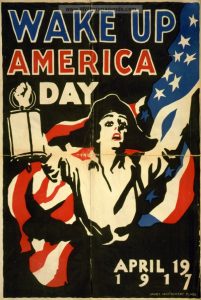 Then came the World War but this time Wilson found he could make good use of the same tactics that had been used against him in 1913 and that he spoke out against so strongly. Of course the difference was he was not trying to deceive anyone but to educate the public into the very sound reasons they should leave their peace-loving natures behind and thirst for the blood of Germans. No doubt he was as sincere as the business interests who had opposed his tariff bill.
Then came the World War but this time Wilson found he could make good use of the same tactics that had been used against him in 1913 and that he spoke out against so strongly. Of course the difference was he was not trying to deceive anyone but to educate the public into the very sound reasons they should leave their peace-loving natures behind and thirst for the blood of Germans. No doubt he was as sincere as the business interests who had opposed his tariff bill.
Who better to help him “educate” the public to believe that war was (the way to) peace than Sigmund Freud’s nephew Edward Bernays teaming up with Walter Lippmann on the Orwellian named Committee of Public Information.
[T]he Allied governments expended unprecedented resources on the development and dissemination of propaganda to heighten patriotism and hatred. Propaganda became a science and a profession. A campaign launched by President Wilson on America’s entry into the war in 1917 filled every home, workplace and leisure activity with its messages. The campaign produced within six months so intense an anti-German hysteria as to permanently impress American business (and Adolf Hitler, among others) with the potential of large-scale propaganda to control public opinion. (Carey 1997, pp. 20f)
The War was only the beginning:
When the war ended, Bernays (1952:87) later wrote, business ‘realized that the great public could now be harnessed to their cause as it had been harnessed during the war to the national cause, and the same methods could do the job’. (Carey 1997, p. 21)
.
The Test – the Great Steel Strike of 1919
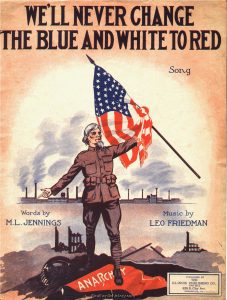 At the War’s end business undertook to roll back the limited gains unions had managed to make during the war period. From the outset the public supported the strikers “who worked an 84-hour week under notoriously bad conditions.” Notice the manipulation of symbols to lead the public to renounce their natural sympathies:
At the War’s end business undertook to roll back the limited gains unions had managed to make during the war period. From the outset the public supported the strikers “who worked an 84-hour week under notoriously bad conditions.” Notice the manipulation of symbols to lead the public to renounce their natural sympathies:
Five days after the strike began the Steel Corporation launched a campaign of full-page advertisements which urged the strikers to return to work, denounced their leaders as ‘trying to establish the red rule of anarchy and bolshevism‘ and the strike as ‘un-American’, and even suggested that ‘the Huns had a hand in fomenting the strike’ (Commission of Inquiry 1921:97, 99). The strike was monitored by a remarkable body called the Interchurch World Movement (IWM) which comprised twenty-six Protestant churches. The IWM produced a two-volume report which concluded that the strike was defeated by ‘the strike breaking methods of the Steel companies and their effective mobilisation of public opinion against the strikers through the charges of radicalism, bolshevism and the closed shop. None of which were justified by the facts’ and through ‘the hostility of the press giving biased and coloured news’ (Commission of Inquiry 1920:248). Under the influence of the steel companies the press built up false Red charges to make the public lose sight of the real issues. Historian Robert Murray (1955:152) sums up the consequences:
When the strike ended in 1920 the men had gained not a single concession … twenty lives had been sacrificed and … $112,000,000 … lost in wages. Backed by a favourable public opinion which was based on an exaggerated fear of bolshevism, this corporation proved that not even 350,000 striking workers could prevail against it.
The Secretary of Labor of the period, Louis Post (1970), has described how, supported by corporate interests, the propaganda assault on public opinion was widened and extended until it produced an anti-Red hysteria about an invented plan by workers and their leaders to overthrow the government. A McCarthyist period ensued from 1919 to 1921, more severe, though shorter in duration, than the McCarthy period after World War II. Murray (1955:17) sums up the consequences for the entire American society:
‘the Great Red Scare soon subsided, but not before the forces of reaction … achieved their goal. Civil liberties were left prostrate, the labour movement was badly mauled, the position of capital was greatly enhanced, and complete antipathy towards reform was enthroned’.
(Carey 1997, pp. 22f)
Propaganda (the kind of which Adolf Hitler was proud, as we saw in the previous post) was effectively deployed to undermine the real will of the people and set the United States on a backward course away from genuine democratic processes and social progress.
Contrast events in UK and Europe at the same time where there was no comparable propaganda assault on democracy. There, labour and social democratic parties were being elected to office.
Manufacturing Public Opinion Replaces Democracy
‘The manufacture of consent … was supposed to have died out with the appearance of democracy’, Walter Lippman (1932:248—9) wrote. ‘But it has not died out. It has, in fact, improved enormously in technique … Under the impact of propaganda, it is no longer possible … to believe in the original dogma of democracy’, that is, that it necessarily reflects the popular will in any significant way. (Carey 1997, p. 23)
Leading scholar of propaganda Harry Lasswell came to the same conclusion in 1927. The powers of the crown, the church, the aristocracy had all declined. Egalitarianism appeared to bring in hope for democracy. Instead, “propaganda has become the principle method of social control.”
If the mass will be free of chains of iron, it must accept chains of silver. If it will not love, honour and obey, it must not expect to escape seduction. (Lasswell 1971: 222) (Carey 1997, p. 23)
.
Carey, A. (1997). Taking the Risk Out of Democracy: Corporate Propaganda versus Freedom and Liberty. Urbana: University of Illinois Press.
Dickinson, G. L. (1895). The development of Parliament during the nineteenth century. London: Longmans, Green. Retrieved from https://archive.org/stream/developmentparl02dickgoog/developmentparl02dickgoog_djvu.txt
Lane, E. (1950). “Some Lessons From Past Congressional Investigations of Lobbying”. The Public Opinion Quarterly, 14(1), 14–32.
Wallas, G. (1908). Human nature in politics. London: Achibald Constable. Retrieved from https://archive.org/stream/humannatureinpol00walliala/humannatureinpol00walliala_djvu.txt
If you enjoyed this post, please consider donating to Vridar. Thanks!

“Bronterre was not alone. Robert Owen was among other prominent voices for the same principle.”
We can find the idea much earlier than that.
John Ball, perhaps,
Gerrard Winstanley
William Godwin,
and, of course, Thomas Paine, in “Agrarian Justice”.
“It is wrong to say that God made Rich and Poor; he made only Male and Female; and he gave them the earth for their inheritance.”
and a fair few others.